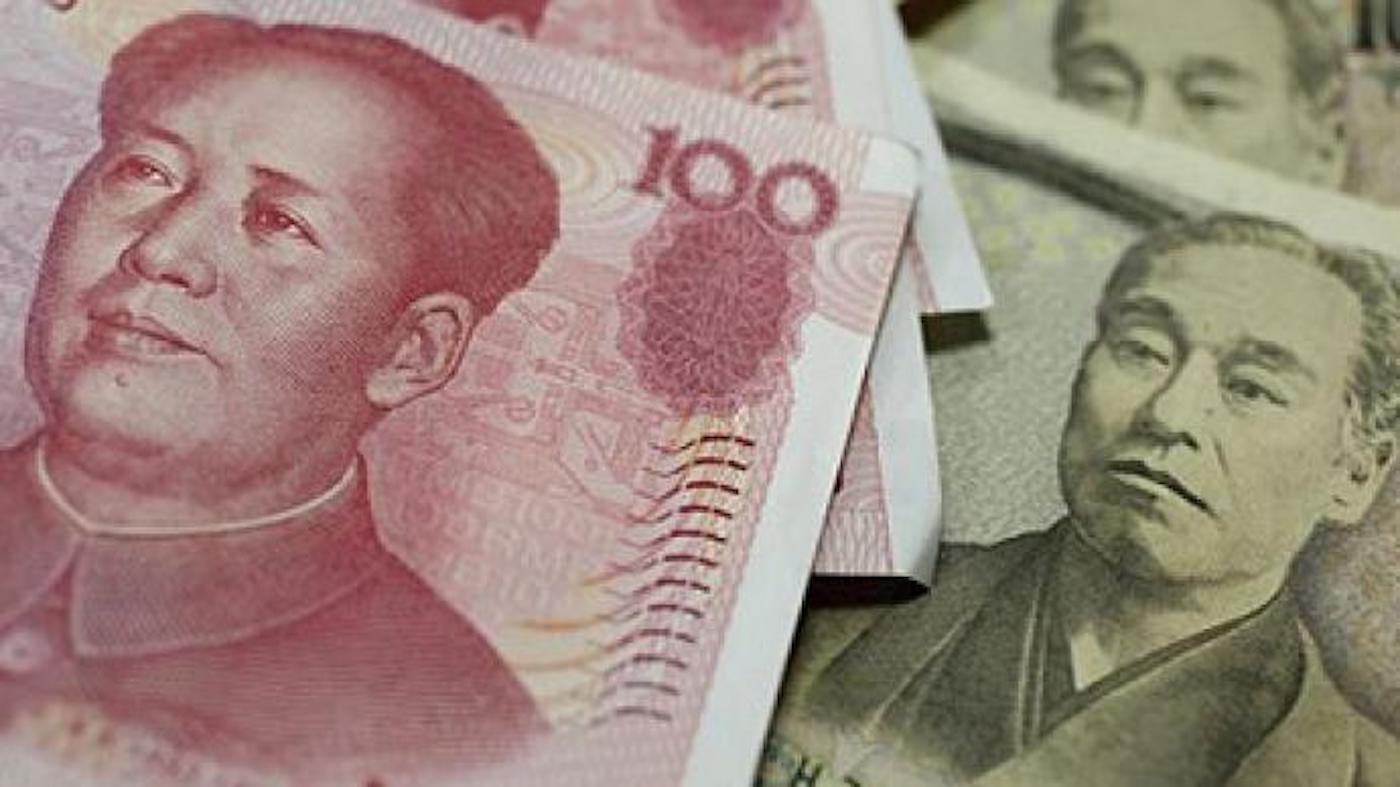
Yuan To Surge As Yen Carry Trade Goes Awry
Ever since the Bank of Japan's July 31 interest rate hike, the yen's resulting surge has upended foreign exchange markets.
Twenty-five years of holding rates at zero turned Japan into the globe's top creditor nation, where for decades investment funds borrowed cheaply in yen to bet on higher-yielding assets worldwide. It became one of the globe's most crowded trades, one uniquely prone to correction where sudden moves in the yen slammed markets virtually everywhere.
The yen's 6% rally over the last 22 days has put the yuan under considerable upward pressure. Just as the yen's weakness earlier this year pulled the yuan down, its rally is pushing the yuan higher in ways Chinese President Xi Jinping might not appreciate.
So far this year, the People's Bank of China has tried to keep the yuan from sliding too far. A weaker yuan would make it harder for Chinese property developers to honor payments on dollar and other foreign currency-denominated offshore bonds, raising China Evergrande Group-like default risks.
A weaker yuan that makes Chinese exports even more competitive might also irk Washington at the height of a raucous US election campaign in which both Republicans and Democrats have portrayed China as public enemy number one. A falling yuan might also set back Beijing's efforts to increase trust in the yuan as a store of value and challenge the dollar.
Yet the degree to which the yuan now faces upward pressure may be irking Xi's inner circle . And that anxiety might be about to intensify if economist Guan Tao, who previously worked for China's foreign-exchange regulator, the State Administration of Foreign Exchange (SAFE), has it right.
“If people see a signal that the yuan could strengthen by 3% to 4%, they won't be interested in holding the dollar and profiting from the yield gap,” Guan told Bloomberg.“The carry trade positions will be closed, and it could happen fast.”
Guan, who's now chief economist at Bank of China International, thinks Beijing will tolerate yuan appreciation to some extent. Doing so might, at the margin, tame the worst capital outflows from China since at least 2016. The trend appears to have spooked Xi's team so much so that regulators have moved to release less high-frequency data.
“Beijing stopped the release because the data hasn't been looking good, and it's volatile,” notes Xin Yao Ng, Asia-region director of investments at abrdn, formerly Standard Life Aberdeen Plc, who stresses that“they probably don't want the data to amplify capital outflows” but“it doesn't solve the root of the problem.”
Might that cause control problems for current SAFE officials? Only time will tell, but a marked rise in the yuan could be a major headwind for Asia's biggest economy at the worst possible moment.

Legal Disclaimer:
MENAFN provides the information “as is” without warranty of any kind. We do not accept any responsibility or liability for the accuracy, content, images, videos, licenses, completeness, legality, or reliability of the information contained in this article. If you have any complaints or copyright issues related to this article, kindly contact the provider above.


























Comments
No comment